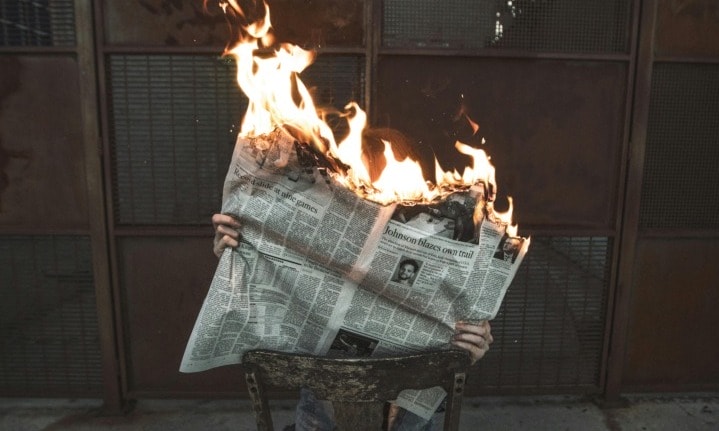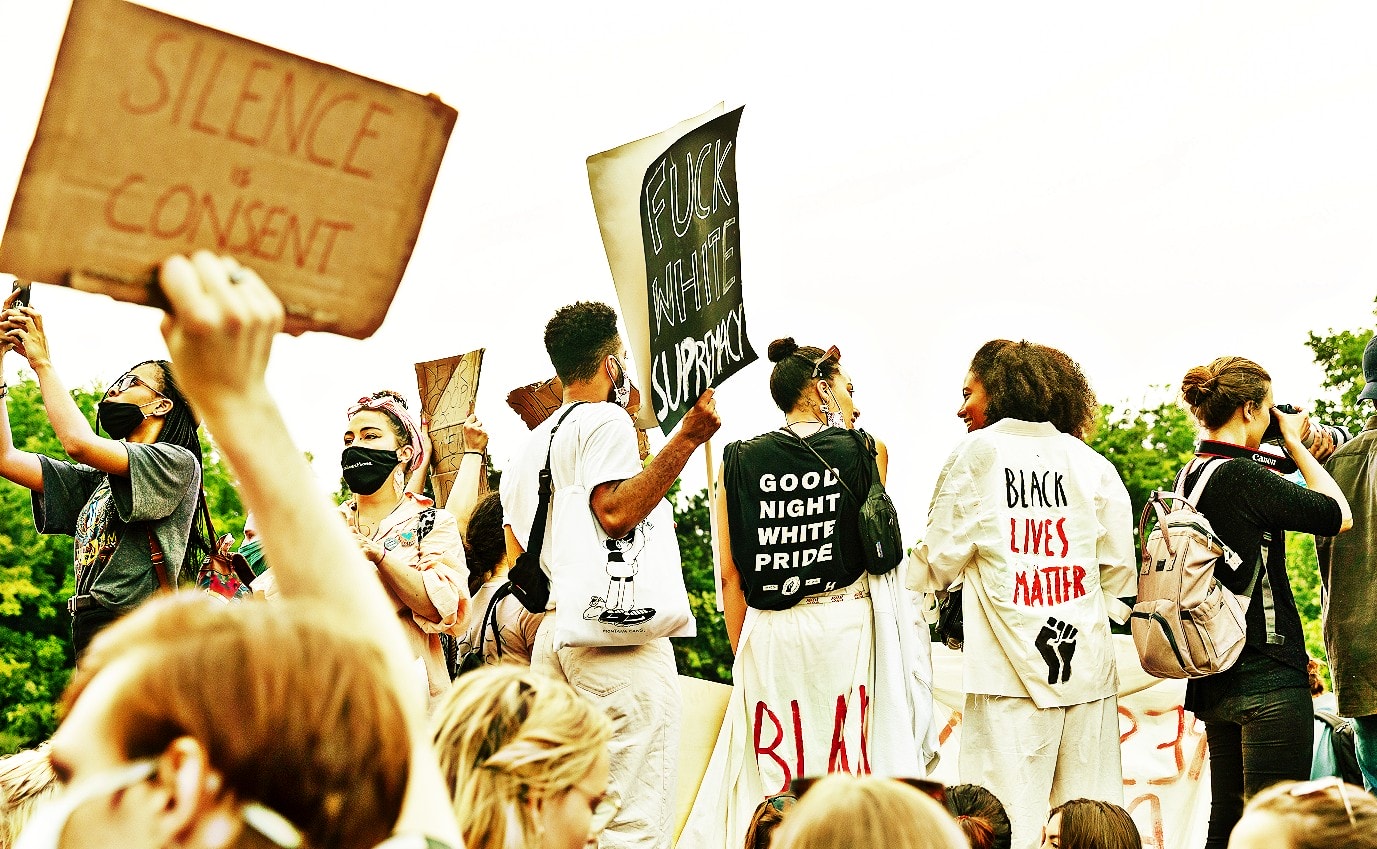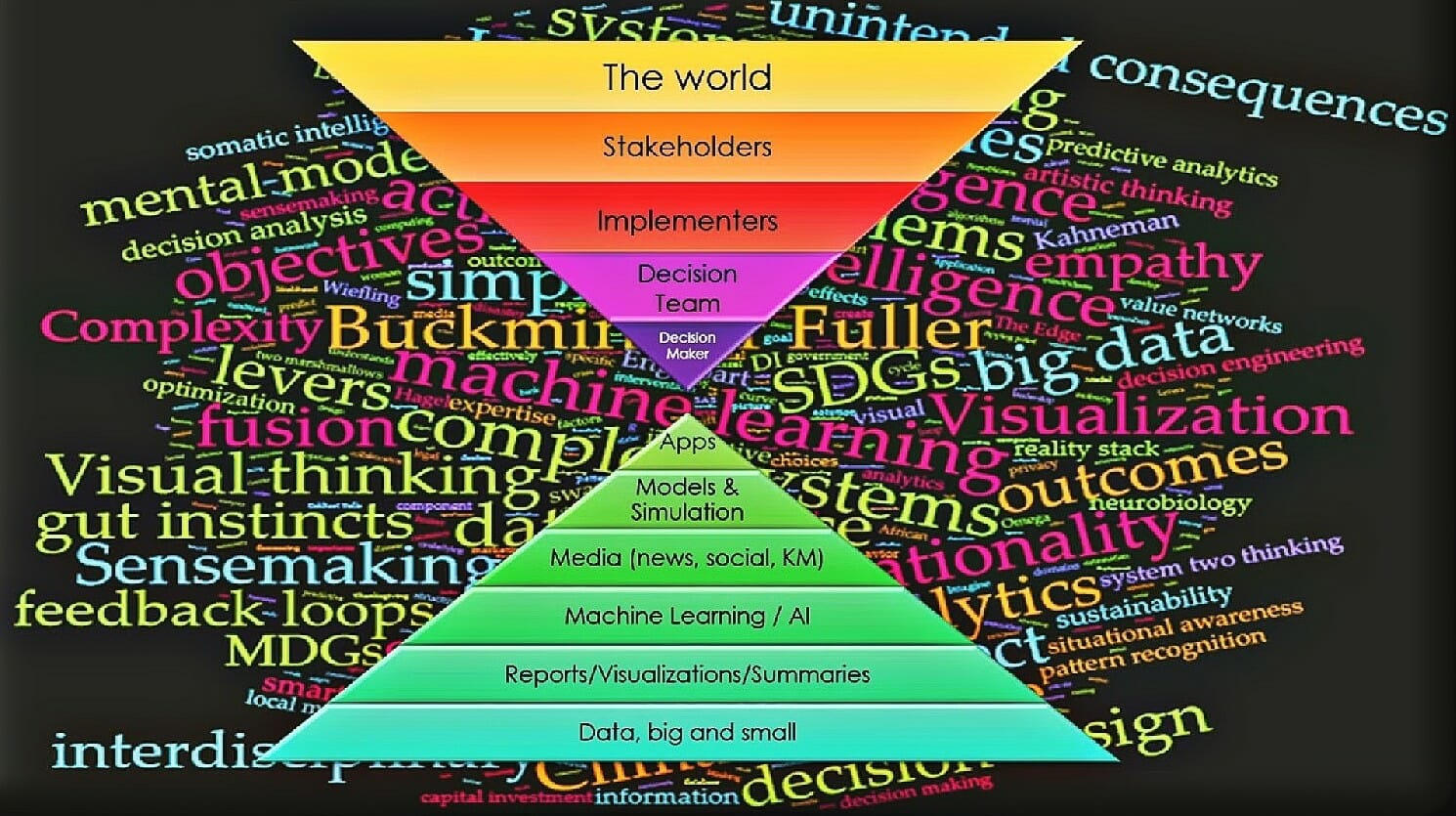Many of us have found an occasion to say or think “I am feeling nothing” when faced with yet another reiteration of the same news, hearing about a distant natural disaster, a serial killing, or destruction from bombing and pillaging somewhere presented as a featured story in the nightly news, the newspapers, or online, even on social media. You hear again and again, with only slight variations, the so-called “issues of the day”. In short, the news cycle is both repetitive – especially during political campaigns – and a source of information overload.
And yet there are issues that cannot be disregarded and warrant constant reminding.
Consider global warming which is projected to cause the extinction of over one-third of the Earth’s animal and plant species by 2050 if current greenhouse gas emissions continue unabated; or a range of natural disasters, from earthquakes to wildfires as well as recurring pandemics and wars. In this article, I use the notion of “feeling nothing” to describe emotional ennui which occurs in the public over time, and political paralysis among leaders, both of which undermine global rules and institutions we desperately need.
Or take the Russian invasion of Ukraine: Waning public interest is happening according to Lynsey Addario, the frontline New York Times photojournalist. She found in the first weeks of the war she was inundated with texts, emails, and phone calls by friends and strangers to express concern for her safety and the defense of Ukraine. As the weeks went by, she has seen the number of inquiries declining.
Or again, the end of the Afghan War: We were riveted by this disaster last summer with the chaos that ensued and the massive numbers of refugees escaping that country. It was the central focus of media around the world but today it has virtually disappeared from public attention and is rarely mentioned on television or in print.
And the elephant in the room: The COVID pandemic: Each day we are fed another data tidbit. For those not in the health profession, epidemiologists, or fact fanatics, we think, “enough is enough.” Already many people everywhere are disregarding and outright mistrusting what public health professionals advise. Despite a new wave and a possible new variant of the virus, calls by the public sector for preventive measures are seen as today’s equivalent of the fairy tale, “The Wolf who Cried Too Much.”
In both the Russian invasion, the Afghan war aftermath, and COVID this blasé reaction is at least in part the result of the constant story and information overload, declining attention span, or replacement by the next top news cycle item.
“Feeling nothing” is defined by some experts as a neutral affect, as feeling indifferent, nothing in particular, and a lack of preference one way or the other, an aspect of our emotional response.
There is more than that: often such sentiments are accompanied with a modicum of sympathy and empathy, coupled, however, with subconscious personal fear (“it could happen to me”) and/or personal relief it has not.
But what if an external event begins to have a negative impact on day-to-day life? Take, for example, the case of the Ukraine war. Should the Russo-Ukraine invasion last for an extended period, then it becomes less likely that non-Ukrainian political leaders will unequivocally support Ukraine’s war effort or stay committed as their constituencies feel the increasingly direct or indirect impact of the war. An impact that can come in the form of a spike in energy or food prices or rising inflation. In an article I wrote earlier at the start of the war, a global food crisis may be expected and when it does hit, support for Ukraine could waver.
Western Europe bears the major brunt of this invasion on many levels: As more gas lines are shut and gasoline is in shorter supply the pain will grow; a NATO and EU member, Hungary, already is stalling and blocking further EU sanctions against Russia; Turkey resists NATO membership bids from Finland and Sweden; and welcoming massive new refugee populations, despite the sympathy for Ukraine, could wane as the newly arrived compete for funding and jobs.
The United States, shielded by an ocean from direct military and social impact, has shown impressive political leadership and significant financial support for Ukraine – so far. Should inflation continue or worsen, energy and food prices rise, and these are seen as affected by the Russian war stalemate, there may be push back by the public to press their representatives to modulate support. Crucial mid-term Congressional elections are nearing, so the extent to which the U.S. remains fully committed – should there be a recession – is an open question. This (for now) seemingly distant event will be part of the American political playbook.
These are only recent examples that have a touch of the not-in-my-backyard syndrome. When we claim to have little sympathy for others, “feel or do nothing”, this is usually an overstatement. Indeed, the simple definition of “nothing” is “no thing” or “something that does not exist”. And it is as much a misnomer for feelings as it is for astrophysicists in trying to provide a simple description of outer space:
“Space is an almost perfect vacuum, nearly void of matter and with extremely low pressure. In space, sound doesn’t carry because there aren’t molecules close enough together to transmit sound between them. Not quite empty, bits of gas, dust and other matter floats around “emptier” areas of the universe, while more crowded regions can host planets, stars and galaxies.”
Back on Earth, our human feelings for others, whether far away or nearby, is not a given part of human behavioral DNA. It is something that is learned, evolves, and nurtured into what can be described as moral behavior if you will. Such morals are defined and amplified by custom, tradition, norms, and laws. When taken together, they provide critical underpinnings for any society to weather danger, unanticipated perils which threaten our very existence.
When a tribe, country, or the “global community” abandons behavioral norms which provide minimal safeguards, when an amoral leader or a minority supporting that person asserts its will on the body politic, everyone associated will move closer to the precipice of anarchy and disaster.
The result is information chaos which amplifies political polarization – and, unsurprisingly, it has been rising at dangerous levels in an increasing number of countries, including in the United States, as revealed by the latest World Press Freedom Index just published by Reporters without Borders:
In the absence of reasonable moral guardrails, however imperfect and imperfectly applied, ultimately catastrophe waits for both those directly affected and all others. Our globalized world has become extraordinarily complex, exacerbated by lightning-fast connectivity as a conduit to being able to widely share ideas, both good and bad, making it more difficult to find a modicum of compromise.
This brings us to the punch line of this piece: We are witnessing what was already a minimal “almost nothing” global political, economic, and security system, rapidly disintegrate.
When global institutions of more than 75 years, such as the United Nations and its many critical technical agencies such as the World Health Organization, UNHCR (the Refugee Agency), UNICEF or the World Food Programme, are considered impotent by an increasing number of both country leaders and the public, bad things happen.
And unlike the imperfect definition of outer space, “almost nothing” will not be good enough for us all. We urgently need to chart a course to put the global Humpy Dumpty back together – or we shall end up among the space dust.
Editor’s Note: The opinions expressed here by Impakter.com columnists are their own, not those of Impakter.com. — In the Featured Photo: Election campaign posters overload Source: Eduardo Davad on Pixabay














